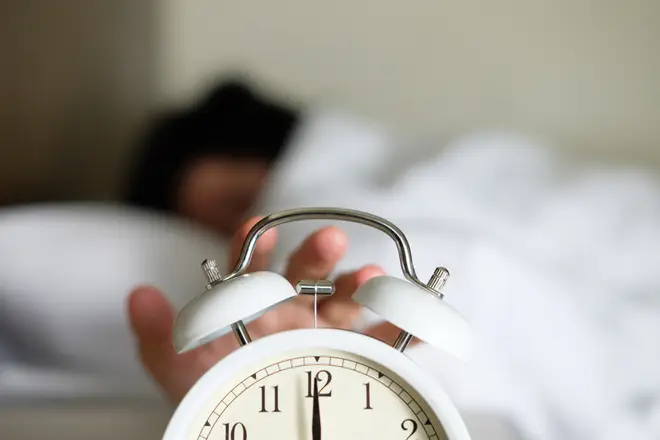When do the UK clocks go back in 2021?
25 October 2021, 11:55 | Updated: 25 October 2021, 12:39

Winter is coming which means the clocks go back to GMT for the colder darker months. Find out what date and time the clocks go back this year.
Listen to this article
The weather is getting colder and it's starting to get darker earlier, which only means one thing: winter is coming.
It can be a little bit depressing as the UK goes hibernation mode, but there's one thing about this time of year that provides a little silver lining: the clocks going back.
Yes, there's one day in the year where we get an extra hour of sleep... or partying depending what you're up to.
But when do the clocks go back in the UK in 2021?
Find about everything you need to know about the clocks changing and why they go back and forwards here.
When do the clocks go back in 2021?
In the UK, the clocks will go back on Sunday 31 October 2021 from 2am and the country will revert back to GMT or Greenwich Mean Time. This always takes place at the last Sunday of October each year. We 'gain' an hour of sleep when this happens, which means it's not as dark when we wake up.
When do the clocks go forward in 2022?
The clocks will go forward in the UK on 27 March 2022 at 1pm and we will enter BST or British Summer Time. This always occurs on the last Sunday of March each year. We 'lose' an hour of sleep when this happens but it means it's lighter for longer while we're awake.
Why do the clocks change in the UK?
In the UK we change the clocks twice a year to maximise the amount of hours of sunlight throughout the year. When the clocks go forward, we are officially in BST or British Summer Time, which is also known as Daylight Saving Time. When the clocks go back we are considered to be back in GMT or Greenwhich Mean Time.
It was created after a campaign led by British builder William Willett in 1907, who is incidentally the great, great grandfather of Coldplay frontman Chris Martin. The move was finally introduced in 1916, a year after Willet's death.
Hilariously enough, Willet is said to have proposed this in order for him to be able to play golf for longer and have more leisure time. However, the benefits of the time change became very apparent as a way of conserving energy, which was essential during WW1 when coal was low.







